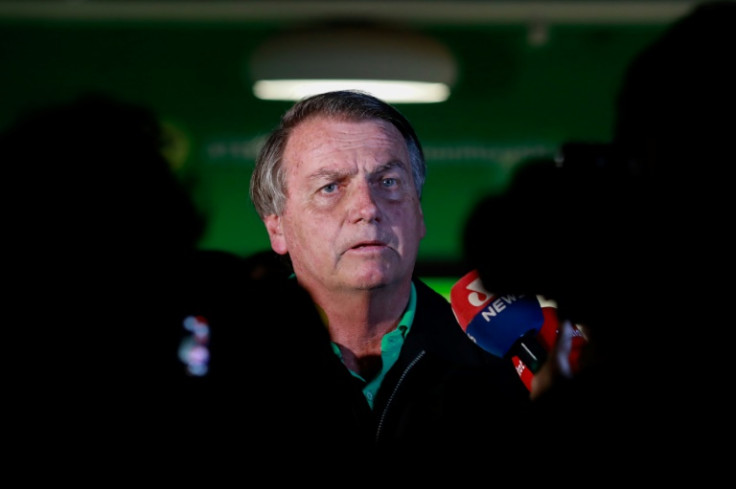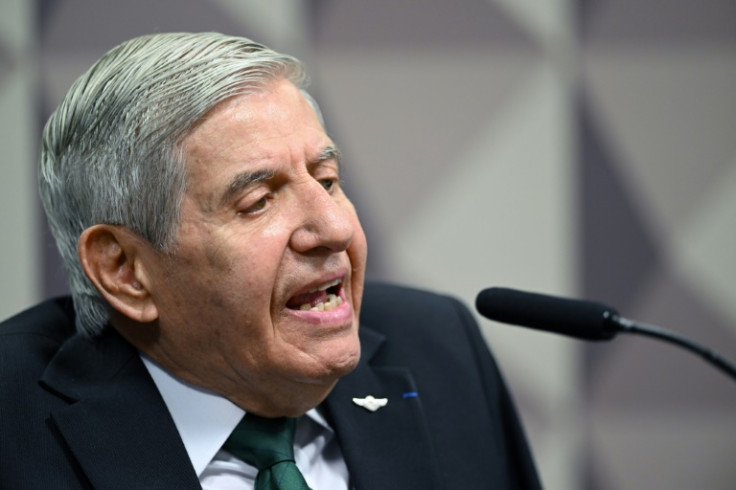
Brazil's former president Jair Bolsonaro is reeling from a damning avalanche of revelations that emerged Thursday as police targeted him and his inner circle in an investigation for allegedly plotting a coup.
Ordered to surrender his passport, the far-right ex-president (2019-2022), who calls himself the victim of "persecution," is likely facing arrest in the near future, according to pundits.
Here is a look at the accusations contained in the court documents that authorized "Operation Tempus Veritatis" -- "hour of truth," in Latin -- in which police carried out dozens of search and seizure raids and arrested several Bolsonaro allies.
Citing investigators, the 135-page ruling by Supreme Court Justice Alexandre de Moraes green-lighting the operation finds evidence that Bolsonaro, members of his cabinet, top advisers and military high brass colluded in a plan to undermine Brazilian democracy and keep him in power.
It details months of anti-democratic maneuvers by Bolsonaro and his allies preparing for a "coup" in the build-up to Brazil's October 2022 elections, which polls suggested the incumbent would lose to veteran leftist Luiz Inacio Lula da Silva.
"These aren't just the delirious ramblings of one collaborator. This was a coordinated action in the presence of several ministers and the president of the republic. It's extremely serious," says Geraldo Monteiro, a political scientist at Rio de Janeiro State University.
Police say the first phase of the plan was to discredit Brazil's electronic voting system with a "disinformation" campaign ahead of the elections, to "legitimize a military intervention" if Bolsonaro lost.
The high court released a video of a July 5, 2022 meeting at which Bolsonaro called on "all cabinet ministers" to help discredit the voting system.
"If we act after the elections, it will be chaos, a guerrilla war, the country will go up in flames," said the ex-army captain.
Army General Augusto Heleno, a top Bolsonaro adviser, added: "If we need to slam our fist on the table to turn the situation around, it has to be before the election."
In the end, Bolsonaro supporters' most blatant power grab came after the election, on January 8, 2023 -- a week after Lula's inauguration -- when thousands of rioters invaded the presidential palace, Congress and Supreme Court, urging the military to oust the newly installed president.
Investigators say preparations were in place for a "military coup to prevent the legitimately elected president from taking power."
Police allege Bolsonaro personally edited a draft decree in which he would have called new elections and ordered the arrest of Judge Moraes.
The text was presented to high-ranking military members at a December 7 meeting.
In the end, it was never enacted.
Moraes's ruling said there was also "pressure on undecided military officers to join the coup plot."
Monteiro called the revelations "the biggest blow so far" for Bolsonaro, even more damaging than when electoral authorities barred him in June from running for office until 2030.
"This time, we're talking about potential criminal charges," he told AFP.
"Bolsonaro will probably be arrested, given his direct implication in preparations for a coup."
Any criminal charges would come only after the investigation concludes, which Brazilian media reports indicate will be soon.
Police say their investigation involves charges of "attempted coup" and "overthrow of the democratic rule of law."
Defendants convicted on those charges over the January 8 riots have been sentenced to 14 to 17 years in prison by the Supreme Court.
Bolsonaro has so far remained a hugely influential figure on the right, despite facing numerous corruption and abuse-of-power investigations since leaving office.
Monteiro said the new scandal is unlikely to "affect the hard core of his most fanatical supporters," but will dent Bolsonaro's broader popularity.
Research and polling firm Quaest found 58 percent of messages on social media about Thursday's police operation were critical of Bolsonaro, a rare setback for the master of digital warfare.
"The near-term repercussions seem modest," said consulting firm Eurasia Group. But the fallout "will deepen the country's political divide," it added.









